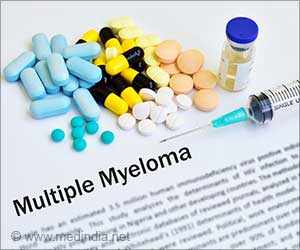Talquetamab produced a significant response in patients with relapsed or highly penetrated refractory multiple myeloma.
- In patients with relapsed or refractory multiple myeloma, talquetamab produced a favorable response
- Cytokine release syndrome, skin-related events, and dysgeusia were all prevalent side effects of talquetamab therapy, however, they were mostly minor
Talquetamab Doses in Multiple Myeloma
In a phase 1 study, researchers evaluated Talquetamab administered intravenously weekly or every other week (in doses ranging from 0.5 to 180 gm per kilogram of body weight) or subcutaneously weekly, every other week, or monthly (5 to 1600 gm per kilogram) in patients with heavily pre-treated relapsed or refractory multiple myeloma that had progressed with established therapies (a median of six previous lines of therapy) or who could not receive these therapies without unacceptable side effects. To identify the recommended doses for phase 2 research, the key end goals- the frequency and kind of dose-limiting toxic effects (study part 1 only), adverse events, and laboratory abnormalities- were analyzed.Side-Effects of Talquetamab
At the time of the data cut-off, 232 patients had received talquetamab (102 intravenously and 130 subcutaneously). At the two recommended subcutaneous doses for a phase 2 study (405 gm per kilogram weekly [30 patients] and 800 gm per kilogram every other week [44 patients]), the most common adverse events were cytokine release syndrome (77% and 80% of the patients, respectively), skin-related events (67% and 70%), and dysgeusia (63% and 57%); all but one cytokine release syndrome event was grade 1 or 2.A patient who received talquetamab at the 800-gm dose level experienced a dose-limiting adverse event of grade 3 rash. At 11.7 months (for patients who received talquetamab at the 405-gm dose level) and 4.2 months (for those who received it at the 800 gm dose level), the percentages of patients who responded were 70% (95% CI, 51 to 85) and 64% (95% CI, 48 to 78), respectively. The median response time was 10.2 months for men and 7.8 months for women.
Source-Medindia











